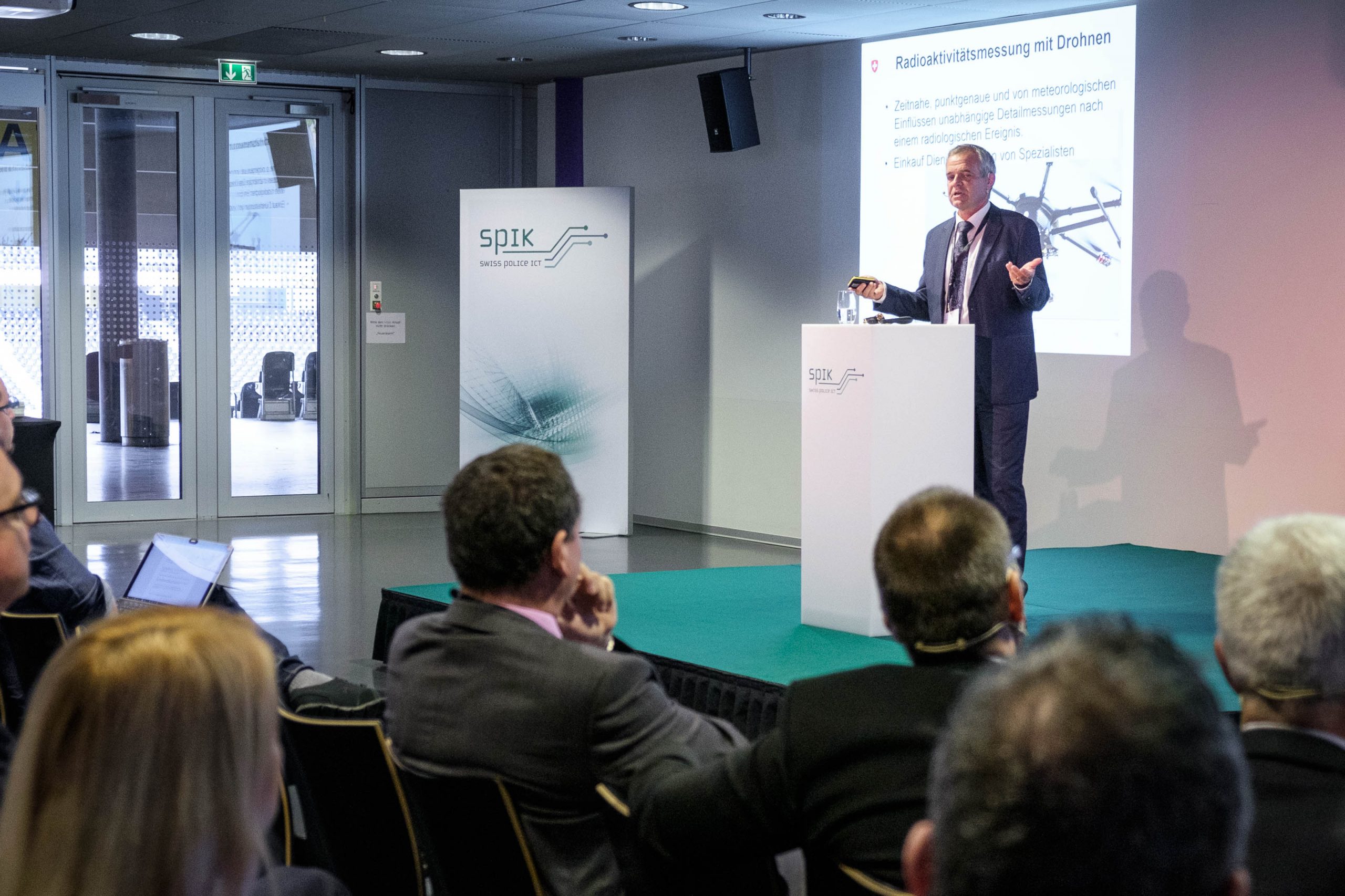"Without leadership, no rescue"
In cooperation with the Federal Office for Civil Protection, it quickly became clear during the 12th SPIK Congress in Bern: Digital transformation is based on the consideration that the digital world requires completely different forms of organization, cooperation and also data use. The two-day event also showcased new trends in the field of police IT.

Polycom and secure broadband communications were the focus of the first day of the 12th Swiss Police Informatics Congress (SPIK) in Bern. Benno Bühlmann, Director of the Federal Office for Civil Protection (FOCP), stated in his opening remarks that the population expects a crisis situation to be successfully managed with the "integrated civil protection system".
"Communications systems enable response organizations to lead and accomplish their mission in a timely manner. Without leadership, no rescue is possible." But these systems must also function reliably during power shortages, pandemics and terrorist attacks. "Therefore, they must be power-safe, highly autonomous, redundant and broadband," Bühlmann said.
In order to identify the promising synergy potential as fully as possible, the FOCP is involving all organizations with rescue and security tasks, as well as operators of critical infrastructures and industry, in order to find solutions together with them throughout the country. The motto is "standing together for innovative solutions in Switzerland", as Bühlmann explained. The prerequisite for realization is the new Civil Protection Act (BZG), which will be discussed in parliament in the coming session.
Transformation process at the customs administration
On the second day of the congress, the presentation by Christian Bock, Director of the Federal Customs Administration (FCA), captivated many interested parties. Bock made it plausible why the FCA is undergoing a far-reaching transformation process. In doing so, he recalled some remarkable figures: every day, around 2.1 million people, 1.1 million vehicles and 24,000 trucks cross the Swiss border. In terms of people, this is twice as much as in the USA.
Digitalization poses major challenges for the FCA. And in this context, "IT is the least important element. For example, enormous upheavals are to be expected in the logistics industry. It can be expected that drone technology will be used across borders, affordable for everyone and, above all, around the clock for the regular transport of goods, Bock said. Adding, "Self-driving trucks will provide new opportunities for goods delivery and pose new challenges for us security agencies."
In 2018, Swiss Post received more parcels from major online retailers from abroad than ever before. And that parcel post is likely to increase. "In the foreseeable future, we will see Chinese retailers delivering their products to Switzerland within weeks," Bock said.
Switzerland is also facing new problems at the local level: "More and more Swiss people are doing their shopping abroad, close to the border. In fact, they benefit from tax exemption. Without the use of digital technologies, it will be impossible to get a grip on this." To illustrate, he mentioned two figures: "With a value exemption limit of 300 francs, we currently have around 250,000 customs clearances at the northern border. If we want to lower the exemption limit to 50 francs, we are talking about 12 million customs clearances. For this, not only employees are missing, but cash registers, parking spaces and storage space."
In short, digital transformation is not an IT project. Digital transformation is based on a much more radical approach. "It is based on the consideration that the digital world requires completely different forms of organization, collaboration and also data use."
A total of around 800 representatives from the police, business and the public sector, IT experts from various industries and participants from politics took part in the 12th SPIK - to exchange ideas and discuss trends. The annual event is the national platform for the exchange of experience on the topics of police IT, operational communication and combating cybercrime. In addition to the 29 presentations, participants were able to see for themselves the practical benefits of the solutions presented at 30 exhibition booths.
Source: Swiss Police ICT









